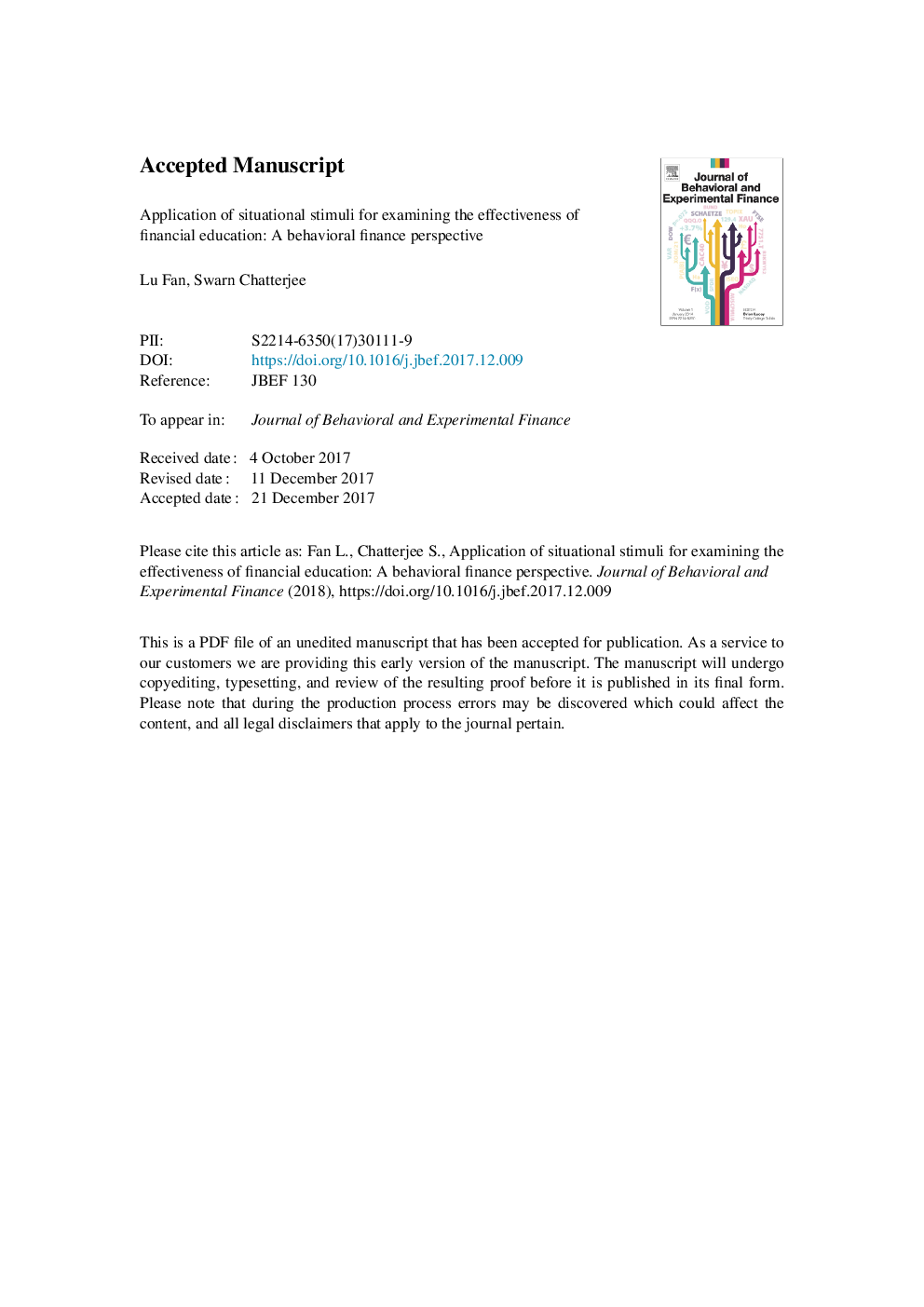| Article ID | Journal | Published Year | Pages | File Type |
|---|---|---|---|---|
| 7296645 | Journal of Behavioral and Experimental Finance | 2018 | 31 Pages |
Abstract
The lack of financial education is often considered the reason for poor financial decision making abilities within the population. Many believe that this could be the consequence of lower rates of financial literacy among Americans. However, as financial education programs continue to become more pervasive, other scholars have argued that financial education may not be very effective in improving peoples' financial decision making abilities. This study examines the role of situational stimuli on the delivery of financial education on investment related topics. The sample is comprised of college students who were randomly assigned to treatment and control groups for the empirical analyses of this study. Results from the experimental application of the three types of treatments when delivering investment related financial education, are presented. The findings indicate that investment-related financial education improves investment knowledge. Additionally, situational and conditional stimuli related to market uncertainty and volatility, and peer effects do not hinder this information processing and knowledge learning process. Findings shed light on the design and evaluation of national financial education programs for financial educators and policymakers.
Related Topics
Social Sciences and Humanities
Economics, Econometrics and Finance
Economics, Econometrics and Finance (General)
Authors
Lu Fan, Swarn Chatterjee,
